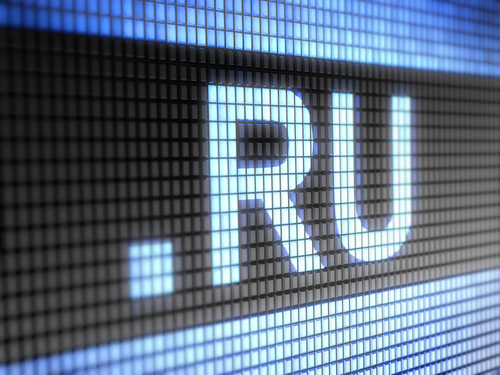Russia has signalled its intention to maintain control of the online world in its country, with action against micro-blogging platform Twitter.
According to Reuters, Russia on Wednesday warned it was slowing down the speed of Twitter in retaliation for its alleged failure to remove banned content. And it threatened a total block if the American platform did not comply with its deletion demands.
Russia’s actions are not unexpected. Last year Russia’s parliament passed legislation that would enable the Russian government to hand out large fines to American social networking giants that fail to delete banned content, or ‘discriminated’ against Russian media outlets.
![]()
Navalny protests
That latter move came after Twitter last year expanded its labelling of accounts belonging to several Russian media outlets with the description “state-affiliated media”, along with those of their senior staff and some key government officials in August.
Russia is already suing Twitter and other social networking platforms of failing to delete posts it said illegally urged children to take part in anti-Kremlin protests.
Twitter did not immediately respond to a request for comment.
Russia is no where near as strict as China in the online world, but it should be remembered that it has already passed a number of restrictive laws governing the online world, not least of which was its so called ‘Sovereign Internet’ law that enables Russia to be cut off from the global Internet.
Russia is currently embroiled in nationwide protests over the arrest and jailing of Kremlin critic Alexei Navalny.
Navalny had survived an assassination attempt when he was poisoned and returned to Russia after treatment in Germany, but was promptly arrested by the Kremlin.
Twitter slowdown
Reuters on Wednesday, citing a statement from Roskomnadzor, the state communications regulator, in which it said there were more than 3,000 posts containing illegal content on Twitter, which it accused of ignoring its deletion requests for years.
Roskomnadzor alleged that the illegal content on Twitter contained child pornography, information about drug abuse and calls for minors to commit suicide.
“The slowing down will be applied to 100 percent of mobile devices and on 50 percent of non-mobile devices,” the regulator said. “If (Twitter) continues to ignore the requirements of the law, the enforcement measures will be continued… (right up to blocking it).”
The move would affect video and photo content, but not text, Interfax cited a regulatory official as saying.
Although Roskomnadzor did not mention the Navalny protests, some activists believe the curbs are linked to recent protests.
“Of course the main motive is the increase in street protest action,” Sarkis Darbinyan, an internet freedom advocate with the Roskomsvoboda group was quoted by Reuters as saying.
“It’s 10 years since the Arab spring this year… they’ve understood the internet is a driving force. Any desire to control the Russian internet is connected to the desire to control the information space,” Darbinyan added.
Russia’s online crackdown has increased in recent years.
It now requires search engines to delete some search results, messaging services to share encryption keys with security services, and platforms to store user data on servers in Russia.
Russia also tried to ban the Telegram messenger service in 2018, but proved technically unable to block the app and last year publicly lifted the ban.




